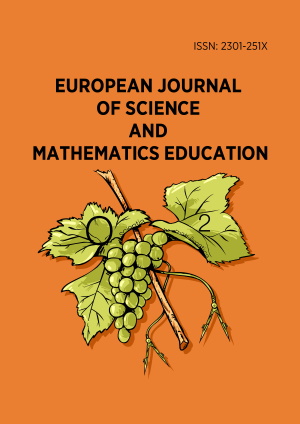Research Article
Developing conceptual understanding and procedural fluency for junior high school students through model-facilitated learning (MFL)
More Detail
1 State Islamic Higher Institution of Kerinci, Jambi, Indonesia2 Indonesia University of Education, Bandung, Indonesia* Corresponding Author
European Journal of Science and Mathematics Education, 4(1), January 2016, 67-74, https://doi.org/10.30935/scimath/9454
OPEN ACCESS 3377 Views 1557 Downloads
ABSTRACT
Conceptual understanding (CU) and procedural fluency (PF) are two important mathematical competencies required by students. CU helps students organizing their knowledge into a coherent whole, and PF helps them to find the right solution of a problem. In order to enhance CU and PF, students need learning experiences in constructing knowledge and procedures. One of learning approaches which supports CU and PF enhancement is Model-Facilitated Learning (MFL). In MFL, students are given opportunities to build their knowledge and construct their own procedure through exploration with a virtual model. This study was an experiment based on pretest-posttest control group aiming to examine the influence of Model-Facilitated Learning on students’ achievement and enhancement of CU and PF. The research subjects were 55 students of grade VII State Junior High School (SJHS) 19 Kerinci, Jambi Province. The results showed that the students who learned mathematics under Model-Facilitated Learning (MFL) had higher CU and PF than the students who received Conventional Learning (CL). Furthermore, the result showed that the students who learned by using MFL had higher enhancement of CU and PF than the students who received Conventional Learning (CL).
CITATION (APA)
Laswadi, Kusumah, Y. S., Darwis, S., & Afgani, J. D. (2016). Developing conceptual understanding and procedural fluency for junior high school students through model-facilitated learning (MFL). European Journal of Science and Mathematics Education, 4(1), 67-74. https://doi.org/10.30935/scimath/9454


 The articles published in this journal are licensed under the CC-BY Creative Commons Attribution International License.
The articles published in this journal are licensed under the CC-BY Creative Commons Attribution International License.